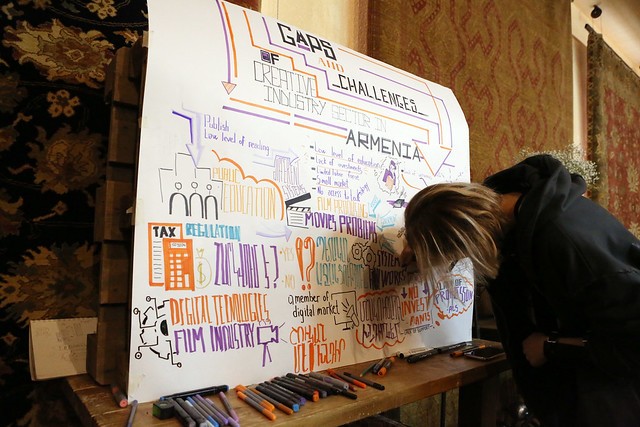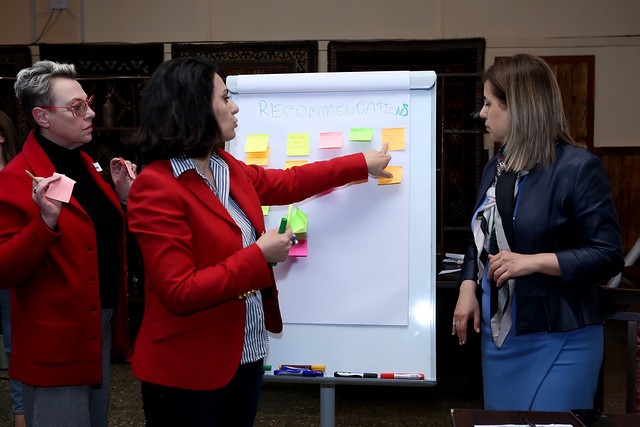
In 2018, The British Council initiated a programme – Creative Spark – for countries in the post-Soviet space to focus on creative economy and enterprise skills development, by building university and institutional partnerships with the UK. In Armenia, six Creative Spark partnerships were awarded funding, all aimed at supporting young people and providing capacity building around creative entrepreneurship.
To mobilise on the recognition of the importance of the creative and cultural industries and the emerging ecosystem in the country, The British Council Armenia convened a two-day Policy Dialogue: Developing Culture and Creative Industries in Armenia.
The first day explored the current state of Armenia’s creative and cultural industries with a highly engaged and diverse group of industry leaders identifying the sector’s challenges and opportunities. Two UK consultants – Jo Wright and Tracey Johnson – shared the UK’s creative economy evolution and vision, policies, implementation practices, and highlighted the benefits that the sector may bring. The day concluded with participants drafting a set of recommendations for the development of the sector in Armenia.

On the second day the recommendations were presented to Armenian government ministers by a sector representative, they included; legislative amendments, financial infrastructure opportunities, and strengthening the economic value of the cultural and creative industries.
Education was quoted as a major resource feeding the economy, and emphasis should be on building on the fragmented projects in formal and non-formal education, such as early entrepreneurial education at secondary schools, and projects like Creative Spark in higher education.
Ruth Wye and Stephen Mayne from Department for Digital, Culture, Media and Sport (DCMS) shared insight into the development of the Creative Industries Sector Deal and how it addresses the issues that the sector face. This spurred many practical questions from the Armenian ministers especially around the process of engagement with the sector.
The aim of the dialogue was to bring together representatives from the sector and government to discuss the gaps and challenges, as well as look at the opportunities to support the development of the sector. Going forward further research will enhance the understanding of the sector's needs and potential, and the interventions that would help boost the creative economy, which could become a key component in the economic revolution undertaken by the Armenian government.